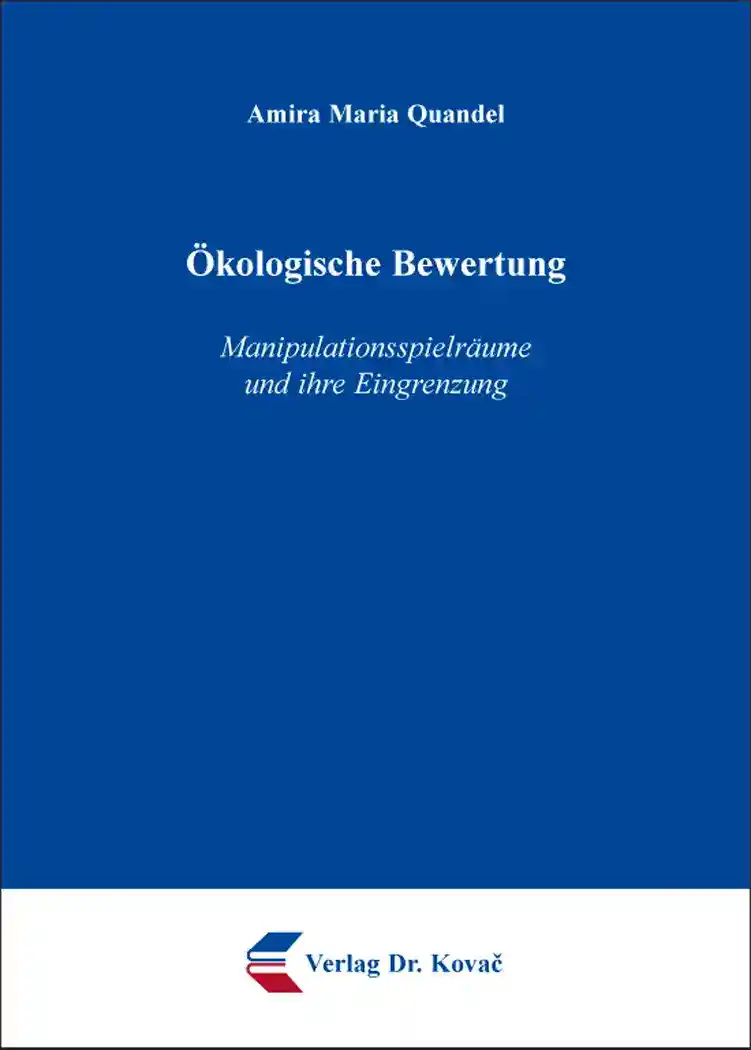Amira Maria QuandelÖkologische Bewertung
Manipulationsspielräume und ihre Eingrenzung
Öko-Management – Studien zur ökologischen Betriebsführung, volume 21
Hamburg 2015, 230 pages
ISBN 978-3-8300-8403-7 (print) |ISBN 978-3-339-08403-3 (eBook)
About this book deutschenglish
Life Cycle Assessments (LCA) result from the increasing demand to assess environmental impacts associated with all the stages of a product's life from cradle to grave. To restrict scope in the evaluation design, the author evaluates the adequate aggregation and allocation of environmental impacts in LCA based on economic sciences. Case studies illustrate the consequences of scope which could be used to manipulate evaluation results in favor of a preferred alternative. Methods for improvements are developed (further). In the first part of the study, using the example of the well-known Eco-Efficiency Analysis by BASF (EEA), the theoretical foundation of LCA data aggregation is analyzed in a decision theoretic perspective. In the EEA literature, the aggregation process, especially its underlying assumptions and weighting factors, are not explained in detail. Therefore, article one uncovers the method’s underlying assumptions and comprehensively reconstructs the EEA based on a case study. The resulting transparency in the evaluation process reduces the potential to influence the interpretation of the analysis’ results. Article two objectively evaluates the EEA’s approach regarding some basic requirements of prescriptive decision theory which ensure the rationality of decision processes. The case study considers evaluation distortions potentially resulting from data aggregation, the potential of hereby manipulating results and thus the systematic control of downstream decisions. Finally, methods to solve the illustrated problems are derived from decision theory. The final part of the study concentrates on allocation principles for environmental impacts of joint production processes. The article analyzes and compares allocation principles deriving from economic and ecologic sciences. Conducting a case study for a combined heat and power plant, the differences of the allocation methods are quantitatively examined and manipulation potentials in the allocation process are uncovered. Finally, based on existing economic and ecologic accounting principles, a new, comprehensive catalogue of principles to constrain existing manipulation potentials is proposed.Kontaktmöglichkeit
Keywords
AllokationBetriebswirtschaftslehreDatenverdichtungEntscheidungsfindungEntscheidungstheorieKuppelproduktionManipulationNachhaltigkeitNachhaltigkeitsmanagementÖkobilanzierungÖkoeffizienz-AnalyseÖkologische BewertungIhr Werk im Verlag Dr. Kovač

Möchten Sie Ihre wissenschaftliche Arbeit publizieren? Erfahren Sie mehr über unsere günstigen Konditionen und unseren Service für Autorinnen und Autoren.
